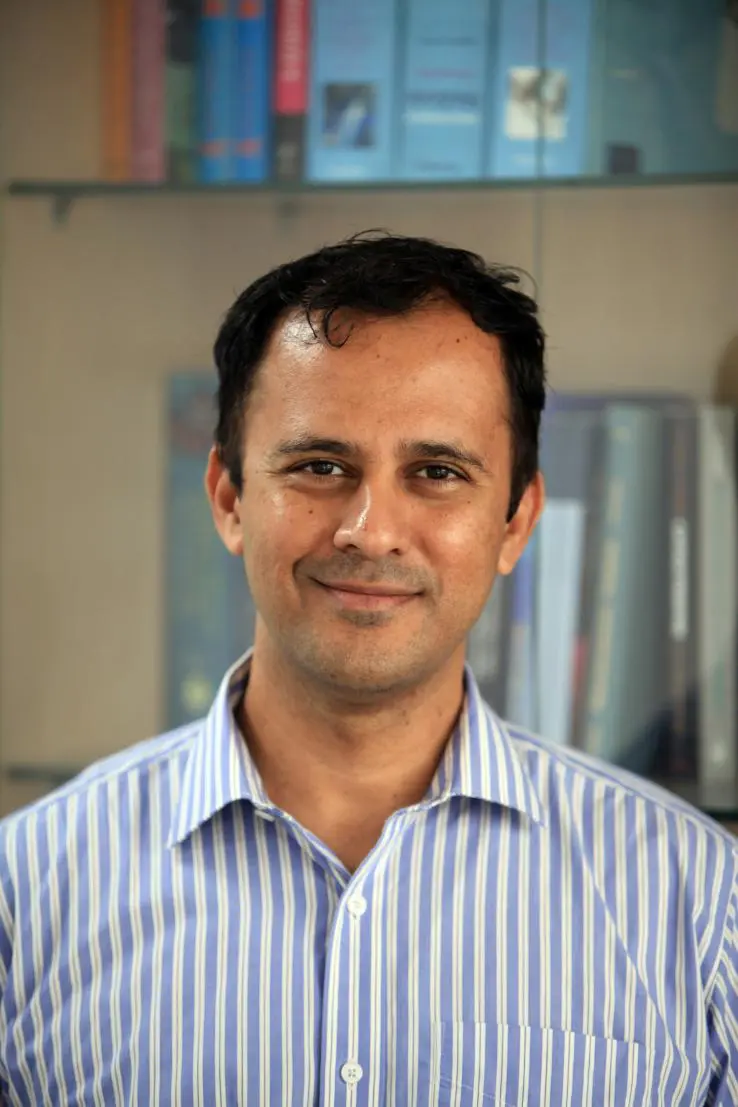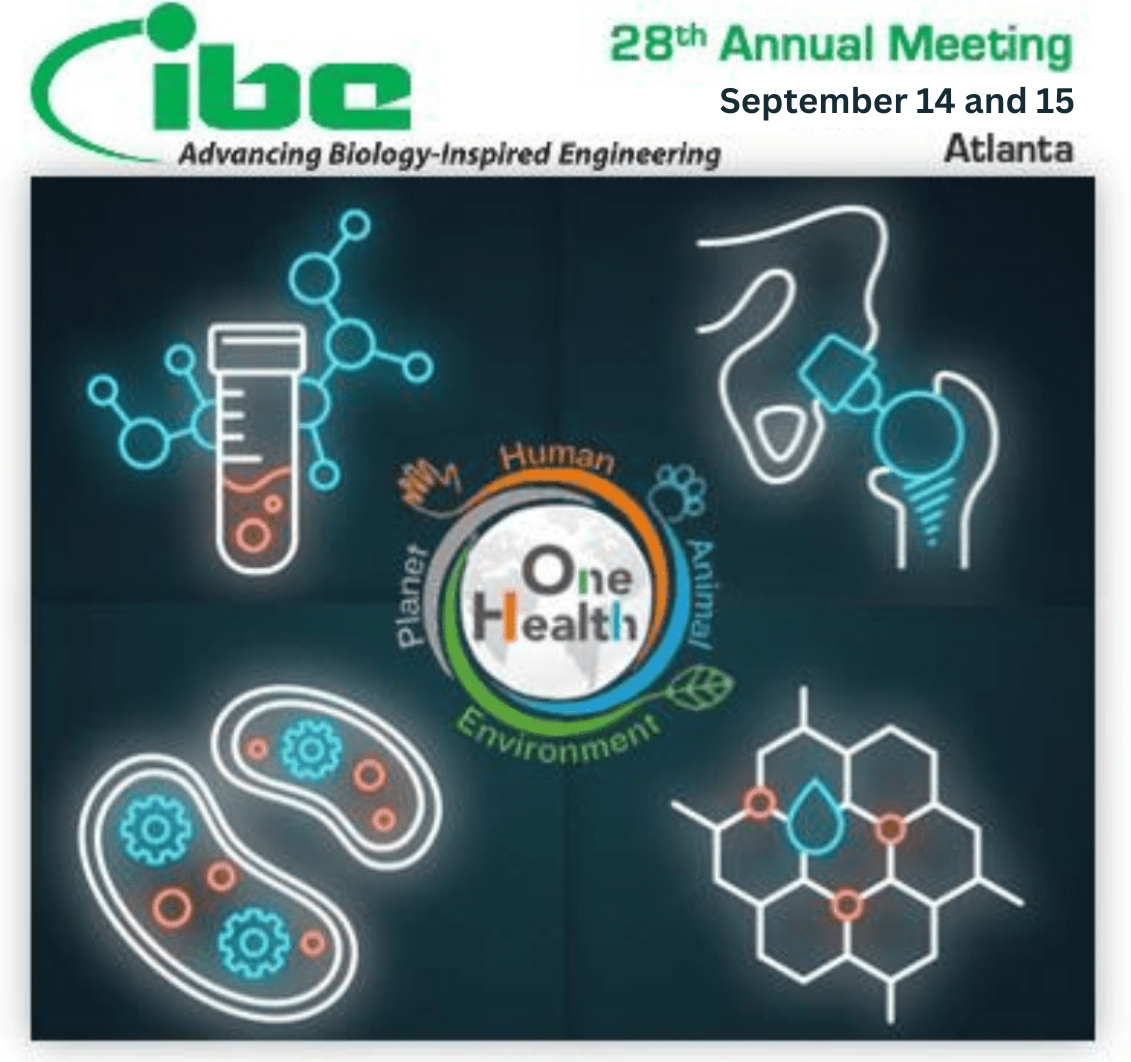To register for the conference, please click on the Register Now button below. You will be navigated to the conference registration page. Before registering for the conference, you must make a new IBE account due to website updates. Please make a new account by following the sign up instructions located in the header of the site.
Keynote Speaker: Dr. Ranu Jung

Dr. Jung joined the University of Arkansas in December 2021 and serves as an Endowed Chair, Distinguished Professor of Biomedical Engineering, and Associate Vice-Chancellor. Her experience includes serving as interim Dean and Department Chair in the College of Engineering and Computing. Professor Jung’s research is at the cutting edge between engineering and neuroscience, developing devices that lead to scientific advances with clear pathways to clinical application. A champion for innovation and entrepreneurship, her team developed the first wireless, implantable neural-interface system for restoring sensations to individuals with upper-limb amputation and received FDA approval to conduct a first-in-human trial.
Dr. Jung is a Fellow of the American Association for the Advancement of Science, the National Academy of Inventors, the American Institute for Medical and Biological Engineering, and the Biomedical Engineering Society. She holds 14 U.S. patents, has founded a company, and has authored more than 130 publications. She was also appointed to the US National Institute of Health National Advisory Council for Biomedical Imaging and Bioengineering. Dr. Jung received her Doctoral and Master’s degrees in Biomedical Engineering from Case Western Reserve University, USA and her Bachelor’s with Distinction in Electronics & Communication Engineering from National Institute of Technology, Warangal, India.
Keynote Speaker: Dr. Ramanan Laxminarayan

Dr. Laxminarayan is the founder and president of the One Health Trust, founded as the Center for Disease Dynamics, Economics & Policy (CDDEP). He is a senior research scholar at Princeton University. He is an affiliate professor at the University of Washington, senior associate at the Johns Hopkins Bloomberg School of Public Health, and a visiting professor at the University of Strathclyde in Scotland. Dr. Laxminarayan chairs the board of GARD-P, a global product development partnership created by the World Health Organization, that aims to develop and deliver new treatments for bacterial infections. He is founder and board chair at HealthCubed, which works to improve access to healthcare and diagnostics worldwide. Since 1995, Dr. Laxminarayan has worked to improve the understanding of antibiotic resistance as a problem of managing a shared global resource. His work encompasses extensive peer-reviewed research, public outreach, and direct engagement across Asia and Africa through the Global Antibiotic Resistance Partnership. Through his prolific research, active public outreach (including a TED talk that has been viewed over a million times), and sustained policy engagement, he has played a central role in bringing the issue of drug resistance to the attention of leaders and policymakers worldwide and to the United Nations General Assembly in September 2016.
During the Obama Administration, Dr. Laxminarayan served on the U.S. President’s Council of Advisors on Science and Technology’s antimicrobial resistance working group and was appointed a voting member of the U.S. Presidential Advisory Council on Combating Antimicrobial Resistance. He is a series editor of the Disease Control Priorities for Developing Countries, 3rd edition. In 2003-04, he served on the National Academy of Science/Institute of Medicine Committee on the Economics of Antimalarial Drugs and subsequently helped create the Affordable Medicines Facility for malaria, a $450 million novel financing mechanism for antimalarials that reduced the cost of antimalarials worldwide. In 2012, Dr. Laxminarayan created the Immunization Technical Support Unit that supports the immunization program of the Ministry of Health and Family Welfare of the Government of India, which is credited with helping introduce four new vaccines and extending vaccination coverage to 3 million infants. As Vice President, Research and Policy at the Public Health Foundation of India between 2011 and 2015, he led the growth of a research division to over 700 technical and research staff.
Dr. Laxminarayan currently leads the largest Covid-19 epidemiology study in the world based on extensive contact tracing in India. The flagship paper from this study was published in Science in 2020. Dr. Laxminarayan is a fellow of the American Academy for Advancement of Science and of the Infectious Diseases Society of America, and a member of the Council on Foreign Relations. He was named a distinguished alumnus by the Birla Institute of Technology and Science, Pilani in 2019, and by the University of Washington Department of Economics in 2020. He is a winner of the Ella Pringle medal by the Royal College of Physicians in Edinburgh (Pringle was the first-ever woman elected to the RCPE) and the BP Koirala medal in honor of Nepal’s first democratically elected Prime Minister. Dr. Laxminarayan’s work has been widely covered in major media outlets including the the New York Times, Washington Post, Associated Press, BBC, Financial Times, CNN, the Economist, LA Times, NBC, NPR, Reuters, Science, Wall Street Journal, and the National Journal. His research includes over 300 books, book chapters, and peer-reviewed papers in leading journals in science, medicine, and economics.
Technical Sessions
Synthetic Biology and Metabolic Engineering:
This session will focus on advances in recent advances in synthetic biology and metabolic pathway engineering for novel biofuels and chemicals as well as engineering cellular fitness and tolerance, including but not limited to development of foundational technologies (new platform technologies and molecular tools – parts, devices, and systems) that support the design and construction of new and modified engineered biological systems, the application of synthetic biology strategies to the design and construction of engineered biological systems that can provide solutions to real world problems, metabolic pathway identification, flux analysis, pathway reassembly, biocatalysis, and biosynthesis.
Biological Engineering Applications in Industry:
This session will focus on the applications of biological engineering within industrial contexts, encompassing a wide array of fields such as pharmaceutical products, agricultural practices, bioremediation, biosensors, food materials, and biofuels.
From Linear to Circular Bioeconomy Systems:
The session focusses on transitioning of current linear food & agriculture systems to circular systems. The general topics include the latest developments in upcycling, downstream integration of waste streams within the food and agriculture systems, regenerative agricultural practices, vertical agriculture, anaerobic digestion, composting and value addition to waste streams.
Bioenvironmental Engineering:
This session provides a forum for local emerging companies to introduce their technologies and companies to the engineers, life scientists, and fellow business registrants for this meeting. The Bio-Business Nexus session typically allots participating companies 12-15 minutes for a podium presentation. If desired, display materials may be placed in the meeting room during the session. We will accept participants on a first-come, first serve basis as we have time available in the program.
Biological Sensing and Diagnostics 1 (food & agriculture) and Biological Sensing and Diagnostics 2 (humans & animals):
Biological sensing refers to the use of a biological recognition element for detection and/or quantification of an analyte through optical, electrochemical, electronic, gravimetric transduction of signal in a device called biosensor. The biological recognition element could be an enzyme, antibodies, nuclei acids, cell receptors, viruses, organelles or microorganism that interact or bind selectively with the analyte. The analyte could be a chemical or biological species of clinical or environmental importance. This session invites abstracts that research topics that focus on the development and application of a broad range biological sensor technology for applications relating to agriculture, biological sciences, the environment, and medicine.
Biomedical Engineering Applications:
This session covers a broad range of biomedical engineering topics, focusing on the application of engineering and design principles in the medical field, including but not limited to medical devices, bioimaging, drug delivery, regenerative engineering, neural engineering, and computational biomedical engineering.
Biomaterials & Nanomaterials:
The focus of this session will be on the development of technologies including nanotechnology that utilize biological materials or biological functions as a design element, which mimics the biological systems, towards artificial tissues/organs, drug delivery/targeting, nanofabricated surfaces, sensors, microfluidic devices, chemical processing, and other biological engineering applications.
Biomanufacturing & Bioprocessing:
This session will concentrate on the latest advancements in the manufacturing and processing of a diverse range of bioproducts, including biofuels, biopharmaceuticals, food ingredients, and various others.
Sustainable, Bio-derived Fuels, and Chemicals:
Living systems such as plants, trees, microbes, animals or previously lived organisms and their byproducts (e.g. manure) can be used to produce fuels, energy, materials and chemicals. Modern technologies and tools offer means to generate diverse stream of products from biomass sources in a sustainable manner with significantly low environmental, ecological and social impacts. This session invites abstracts on a broad range of sustainable biomass topics including biofuels, bio-derived materials and chemicals and their associated conversion technologies, techno-economic analysis and life cycle analysis.
Emerging Pathogens and Infectious Diseases Preparedness, Surveillance, and Response
Tissue & Cellular Engineering:
Tissue engineering refers to the use of cells, materials and biochemical factors to improve or replace biological functions by employing sets of methods to replace or repair damaged or diseased tissues with natural, synthetic or semisynthetic tissue mimics that will offer the desired functionality. Cellular engineering is a field focusing on engineering of host cells for enhanced production of valuable products or improved properties of cells. The session invites abstracts related to all areas of tissue and cellular engineering, including but not limited to cell culturing, isolation, cell seeding, cell harvesting, scaffolds for tissue engineering, bone grafting, bone tissue engineering, bone scaffolds, cellular therapies, artificial organs, gene and drug delivery, cell-substrate interactions, regenerative medicine and clinical translation of these approaches.
Integrative Precision Agriculture
Special Sessions
Beyond "Know your audience": What's Biological Engineering, anyway?
Biological Engineering Education – Convergence, Circularity, and Ethical Considerations
Charting the Future of Bioengineering within the One Health Paradigm
Role of Biological Engineering in Bioeconomy
Special Programming
Poster Session – open to everyone, best poster awards for students:
The poster session presentations covering any topic within biological engineering are invited. A special poster session for student research projects or engineering design projects will be included within the poster session. The top three Undergraduate Student Posters and top three Graduate Student Posters will receive cash awards and certificates of merit.
Speed Networking – open to everyone, find new collaborations and job opportunities:
This event provides a wonderful social opportunity for the attendees, including students, researchers, professors, industry representatives, and other professionals.
Bio-Business Career Panel – open to everyone, learn from and interact with experts in the field:
This session provides a forum for emerging companies to introduce their technologies and companies to the engineers, life scientists, and fellow business registrants for this meeting. This session is a great opportunity for the attendees to directly interact with industry representatives.
Bioethics Essay Competition – open to students and awards for students:
This session will feature the results of a student competition and selected presentations on bioethics as it relates to biological engineering topics.

